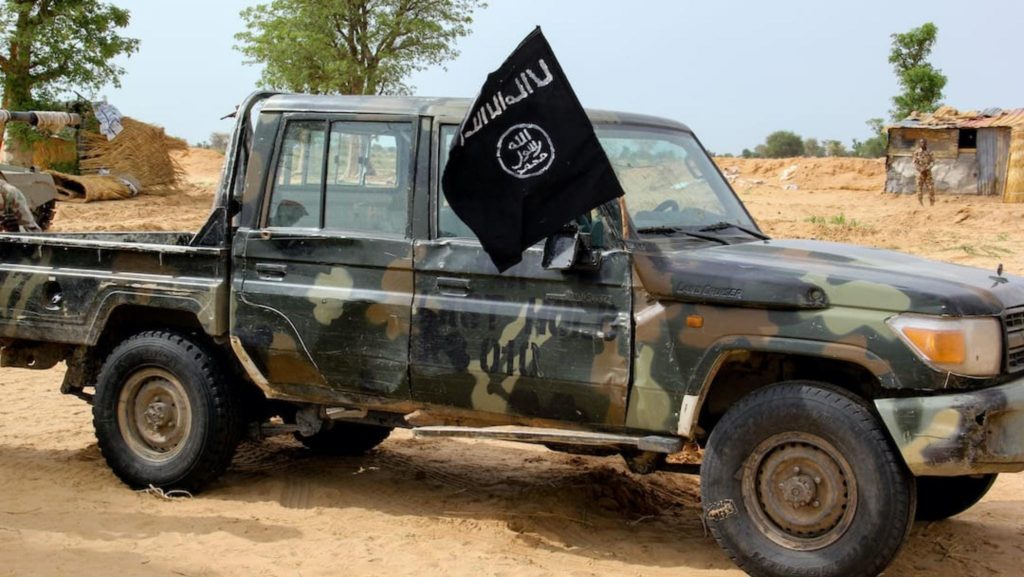After the dramatic collapse of the Islamic State (ISIS) “caliphate” in 2017, officials and observers are debating whether renewed attacks by ISIS in Iraq signal a resurgence there. What seems undeniable, though, is that the fortunes of ISIS-linked militants in sub-Saharan Africa are rising. The ISIS franchise in the Sahel has expanded significantly, confounding the efforts of regional armies and a French-led military mission. In Mozambique, on the continent’s other side, ISIS-linked militants have opened a new front in the country’s gas-rich north. The most potent splinter group of the movement formerly known as Boko Haram, which has redoubled attacks on security forces in north-eastern Nigeria and the Lake Chad basin, also brands itself as an ISIS affiliate: the Islamic State in West Africa Province (ISWAP).
Information about ISIS’s growth in Africa is scarce. Crisis Group can now shed new light on the subject, however, based on extensive interviews with former fighters about how ISIS cultivates and supports allies on the continent. In November 2019 and March 2020, Crisis Group interviewed sixteen defectors from Boko Haram and ISWAP. Among the persons interviewed were several former fighters who had served as bodyguards for different senior commanders, as well as one of the men involved in running the electronic communication platforms used by Nigerian jihadists to consult with the ISIS caliphate in the Levant. The account below is pieced together primarily from their testimony, with information almost always corroborated by at least two of those sources, consulted independently. ISIS deployed limited yet targeted support to upgrade the capabilities of a distant jihadist group adopting the ISIS brand and make it a far more potent insurgent force.
The findings relate only to the period prior to these men’s defection (2017 or early 2018 at the latest) and are specific to the experience of Boko Haram and ISWAP. But they provide a sense of how ISIS deployed limited yet targeted support such as ideological and operational guidance, as well as small amounts of money, to upgrade the capabilities of a distant jihadist group adopting the ISIS brand and make it a far more potent insurgent force. They also show how the group supports its franchises without exerting direct control, even if the relationship is at times fraught, and how local groups themselves, and factions within them, benefit from ISIS ties. The research complements earlier work by Crisis Group on how ISIS can take advantage of local disorder and grievances, often piggybacking on local conflicts.
How Boko Haram Became an Islamic State Franchise
ISWAP’s rapid rise – defying joint military operations by the Lake Chad countries Nigeria, Niger, Chad and Cameroon that spanned their border regions – is still poorly understood, as is the extent of its ties with ISIS. What is clear from Crisis Group’s interviewees is that the global jihadist group played a critical role in rebranding the Lake Chad militants under its franchise and provided them with valuable concrete assistance that strengthened their insurgency. Yet the nature of ISIS’s involvement was often dictated by events and local militants’ decisions in Africa, rather than by policies formulated in the Levant.
The Nigerian militants were keen to associate themselves with ISIS from the time it gained prominence. In June 2014, when Abu Bakr al-Baghdadi declared a caliphate in the Levant, jihadist camps in Nigeria were abuzz with the news. In August, Abubakar Shekau, then both the leader and “imam” of Boko Haram (known formally as Jama’tu Ahlis Sunna Lidda’awati wal-Jihad, or JAS), issued his own statement, announcing that the territory JAS had acquired was “a state among the states of Islam”. Contrary to what has occasionally been reported, Shekau did not proclaim a caliphate of his own. But neither did he swear allegiance to al-Baghdadi’s caliphate; in fact, he did not mention it. Defectors say Shekau’s objective was simply to identify himself with ISIS in order to appease those JAS fighters and affiliates who wanted a close relationship with ISIS, without referring explicitly to al-Baghdadi as his superior. The JAS militants who saw the benefit in ISIS ties were those who had the greatest international experience and believed that forming relations abroad could help them scale up their activities.
The JAS militants who saw the benefit in ISIS ties were those who had the greatest international experience and believed that forming relations abroad could help them scale up their activities. Some of them had spent time in Algeria or Sudan during the 1990s before joining Boko Haram. Some also had previous contacts with al-Qaeda in the Islamic Maghreb, and others had taken part in jihad in Somalia. Defectors said the top JAS military commander (amir al-jaysh) at the time, Aliyu al-Gombewi – himself experienced in fighting abroad – was the most vocal advocate of linking up with ISIS.
It is not clear how contacts between JAS and ISIS were first established, but defectors describe sustained internet-based communication from 2015 onward. At first, the primary communications challenge was that Boko Haram lacked a stable internet connection – as is already known from the testimony of a Tunisian militant from the Ansar al-Sharia organisation who had reached out to JAS. Defectors say the militants soon overcame such technical difficulties, however, and contacts eventually went smoothly. At that point, ISIS began giving JAS advice on how to manage its communications, suggesting that it use the messaging application Telegram – popular among jihadists due to heavy encryption – instead of WhatsApp.
The two organisations exchanged audios, videos, photos and documents about recent battles, internal organisation and religious doctrine, sometimes on a daily basis. The back-and-forth included occasional live-streaming conversations between leaders on both sides. On ISIS’s side, Abu Mohammad Al-Adnani, chief of the group’s external operations, who was killed in August 2016 in Syria in a U.S. strike, was reportedly the key interlocutor. On the JAS side, participants were Shekau himself as well as members of the shura, then chaired by Mamman Nur, a popular preacher and a companion of Boko Haram’s late founder, Mohamed Yusuf.
